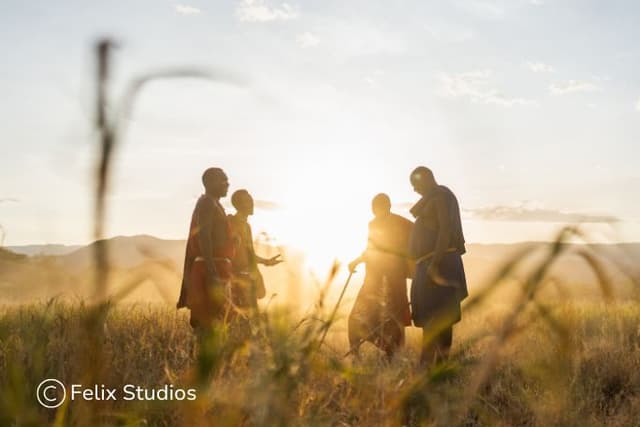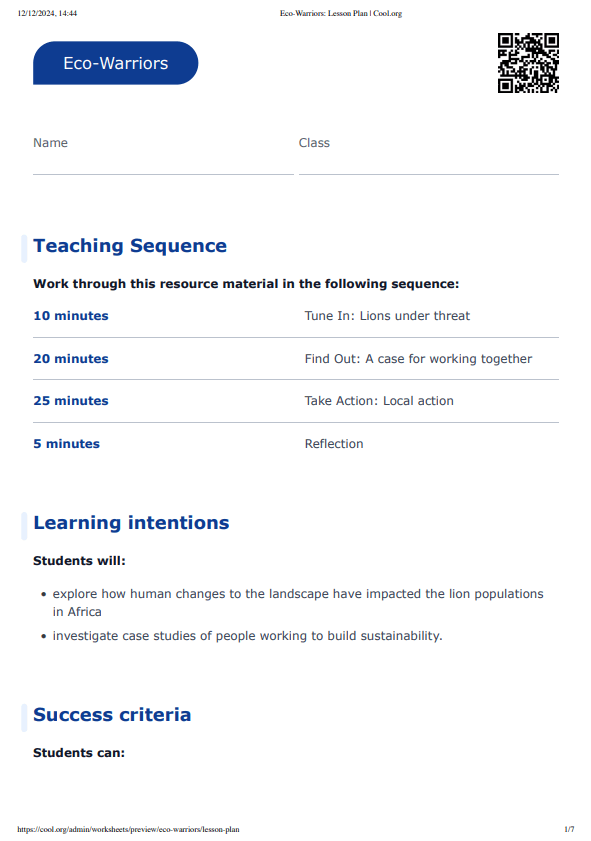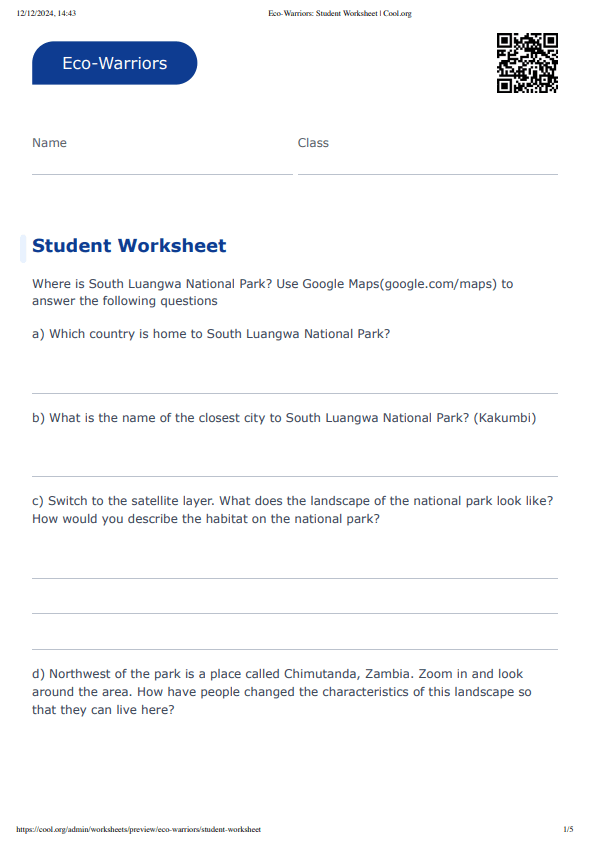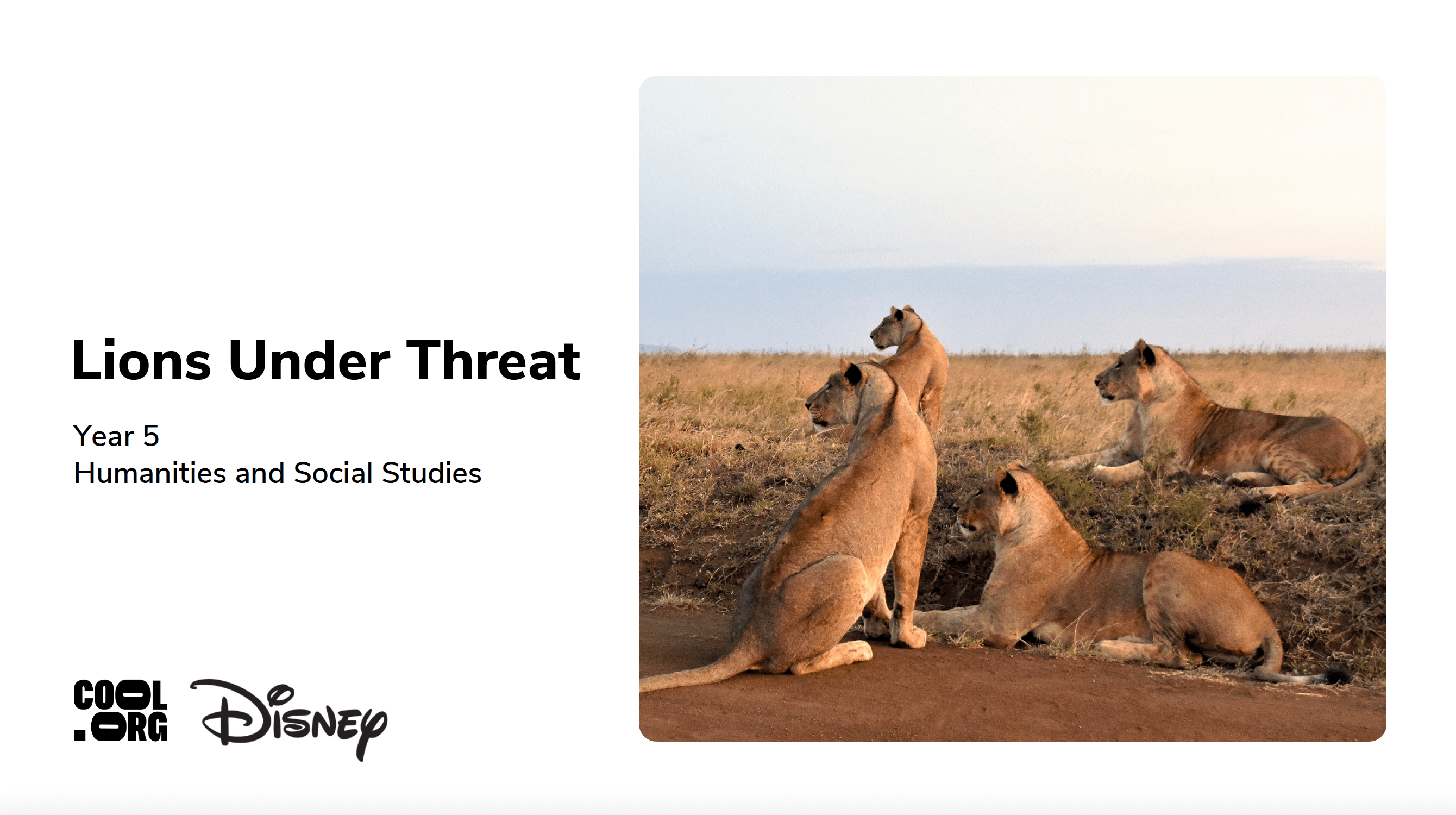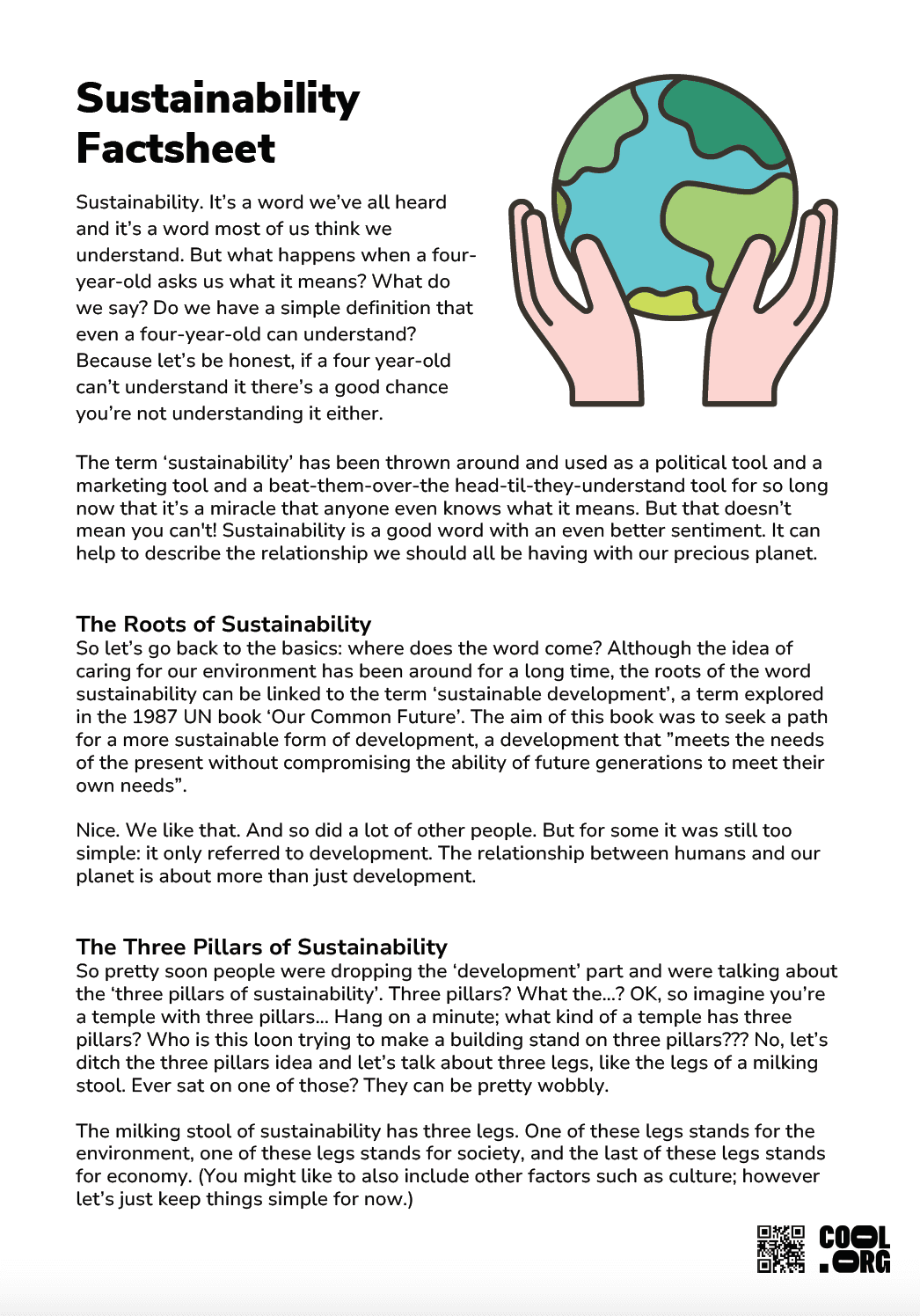Learning intentions:
Students will...
- explore how human changes to the landscape have impacted the lion populations in Africa
- investigate case studies of people working to build sustainability.
Success criteria:
Students can...
- explain how human-induced change to the characteristics of a place have intended and unintended impacts
- describe actions taken to improve sustainability and why they are impactful.
